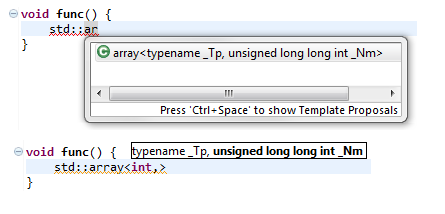Boost Library Incubator -- Andrzej Krzemieński

Boost Library Incubator
by Andrzej Krzemieński
From the article:
Today, I wanted to draw your attention to the new initiative driven by Robert Ramey: Boost Library Incubator. It is a place where one can put C++ libraries targeted for inclusion into Boost...

 News about Cevelop, a C++ IDE for professional developers from the Institute for Software at HSR Hochschule für Technik:
News about Cevelop, a C++ IDE for professional developers from the Institute for Software at HSR Hochschule für Technik: This just in on CppCon.org:
This just in on CppCon.org: Following the recent ISO C++ meeting hosted by Riverbed and the University of Illinois at Urbana-Champaign, the University posted this summary of the event:
Following the recent ISO C++ meeting hosted by Riverbed and the University of Illinois at Urbana-Champaign, the University posted this summary of the event: In case you missed it:
In case you missed it: We like to link to articles at all levels. This one's near the top of the scale, for those looking for a real challenge:
We like to link to articles at all levels. This one's near the top of the scale, for those looking for a real challenge: